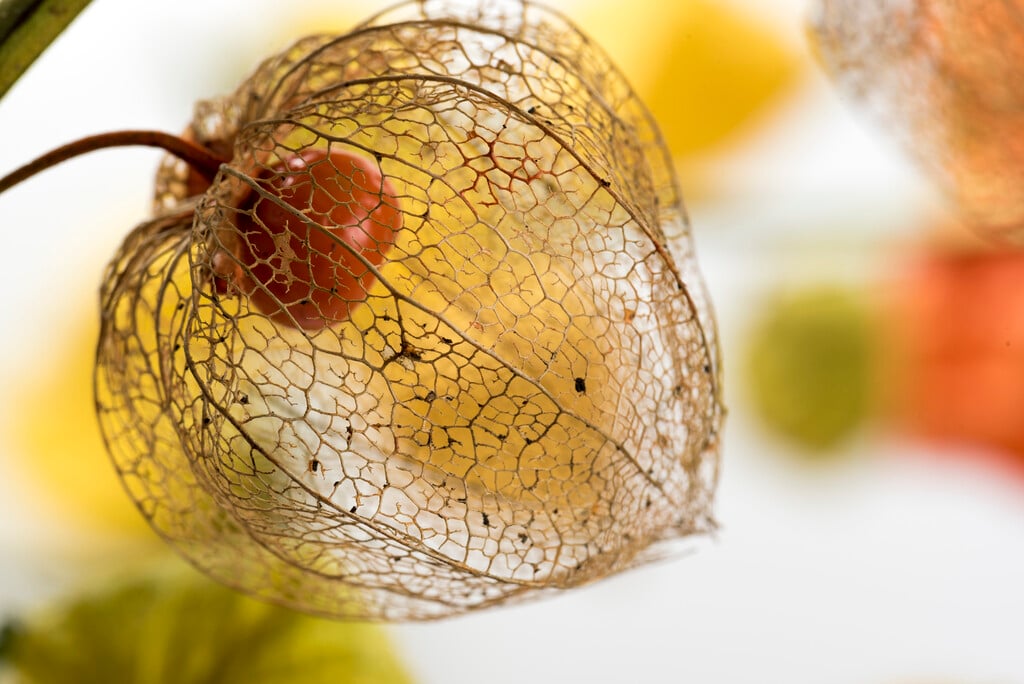Physalis alkekengi
Chinese lantern
A vigorous herbaceous perennial to 60cm tall, with ovate leaves. Nodding, creamy-yellow bell-shaped flowers 2cm wide appear in summer, followed by inflated, lantern-like deep orange calyces 5cm long, enclosing red berries
Other common names
alkegengibladder cherry
see morebladder herb
Chinese lantern plant
devil's berry
devil's bladder
Japanese lantern
red nightshade
red winter cherry
strawberry tomato
strawberry-and-tomato
winter cherry
Synonyms
Alkekengi officinarumSize
Ultimate height
0.5–1 metresTime to ultimate height
2–5 yearsUltimate spread
0.5–1 metresGrowing conditions
Moisture
Well–drainedpH
Acid, Alkaline, NeutralColour & scent
| Stem | Flower | Foliage | Fruit | |
| Spring | Green | |||
|---|---|---|---|---|
| Summer | Yellow Cream | Green | ||
| Autumn | Green | Orange | ||
| Winter |
Position
- Full sun
- Partial shade
Aspect
South–facing or West–facing or East–facing
Exposure
Exposed or Sheltered Hardiness
H7Botanical details
- Family
- Solanaceae
- Native to GB / Ireland
- No
- Foliage
- Deciduous
- Habit
- Bushy
- Potentially harmful
- Harmful if eaten, except ripe fruit. Wear gloves and other protective equipment when handling. Pets (dogs): Harmful if eaten, except ripe fruit - For further information and contact numbers regarding pets, see the HTA guide to potentially harmful plants
- Genus
Physalis can be annuals or rhizomatous perennials with simple or pinnately lobed leaves and small bell-shaped flowers in the leaf axils, followed by fleshy, sometimes edible, yellow, red or purple berries, enclosed in enlarged, often colourful, calyces
- Name status
Correct
- Plant range
- Europe, Asia
How to grow
Cultivation
Grow in any well-drained soil in sun or partial shade. Has the potential to become a nuisance if not managed well
Propagation
Propagate in containers in a cold frame in spring; propagate by division in spring
Suggested planting locations and garden types
- Cottage and informal garden
- City and courtyard gardens
- Coastal
- Flower borders and beds
Pruning
No pruning required
Pests
May be susceptible to caterpillar damage
Diseases
Generally disease-free
Get involved
The RHS is the UK’s gardening charity, helping people and plants to grow - nurturing a healthier, happier world, one person and one plant at a time.
